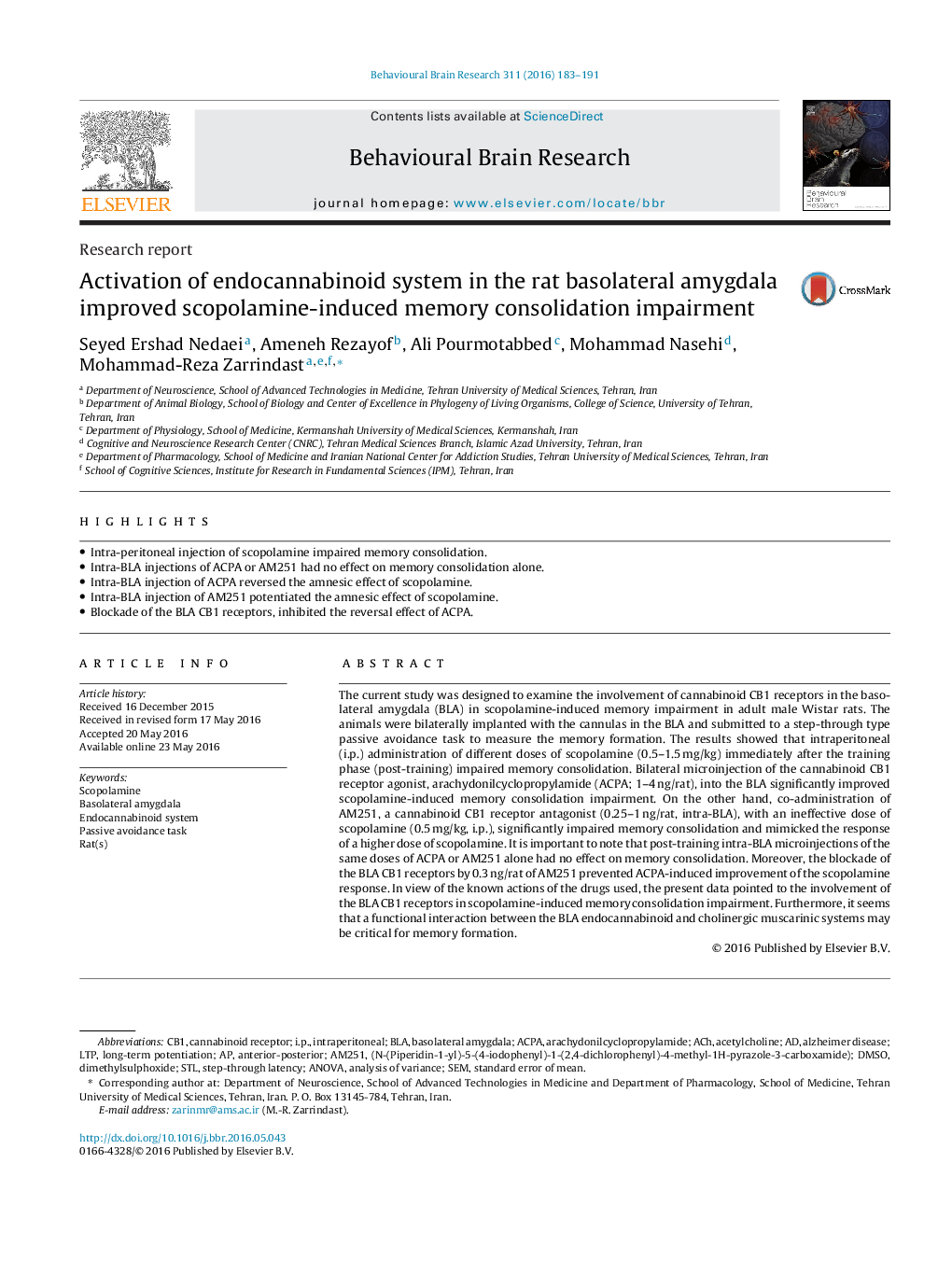| Article ID | Journal | Published Year | Pages | File Type |
|---|---|---|---|---|
| 6255923 | Behavioural Brain Research | 2016 | 9 Pages |
â¢Intra-peritoneal injection of scopolamine impaired memory consolidation.â¢Intra-BLA injections of ACPA or AM251 had no effect on memory consolidation alone.â¢Intra-BLA injection of ACPA reversed the amnesic effect of scopolamine.â¢Intra-BLA injection of AM251 potentiated the amnesic effect of scopolamine.â¢Blockade of the BLA CB1 receptors, inhibited the reversal effect of ACPA.
The current study was designed to examine the involvement of cannabinoid CB1 receptors in the basolateral amygdala (BLA) in scopolamine-induced memory impairment in adult male Wistar rats. The animals were bilaterally implanted with the cannulas in the BLA and submitted to a step-through type passive avoidance task to measure the memory formation. The results showed that intraperitoneal (i.p.) administration of different doses of scopolamine (0.5-1.5Â mg/kg) immediately after the training phase (post-training) impaired memory consolidation. Bilateral microinjection of the cannabinoid CB1 receptor agonist, arachydonilcyclopropylamide (ACPA; 1-4Â ng/rat), into the BLA significantly improved scopolamine-induced memory consolidation impairment. On the other hand, co-administration of AM251, a cannabinoid CB1 receptor antagonist (0.25-1Â ng/rat, intra-BLA), with an ineffective dose of scopolamine (0.5Â mg/kg, i.p.), significantly impaired memory consolidation and mimicked the response of a higher dose of scopolamine. It is important to note that post-training intra-BLA microinjections of the same doses of ACPA or AM251 alone had no effect on memory consolidation. Moreover, the blockade of the BLA CB1 receptors by 0.3Â ng/rat of AM251 prevented ACPA-induced improvement of the scopolamine response. In view of the known actions of the drugs used, the present data pointed to the involvement of the BLA CB1 receptors in scopolamine-induced memory consolidation impairment. Furthermore, it seems that a functional interaction between the BLA endocannabinoid and cholinergic muscarinic systems may be critical for memory formation.
